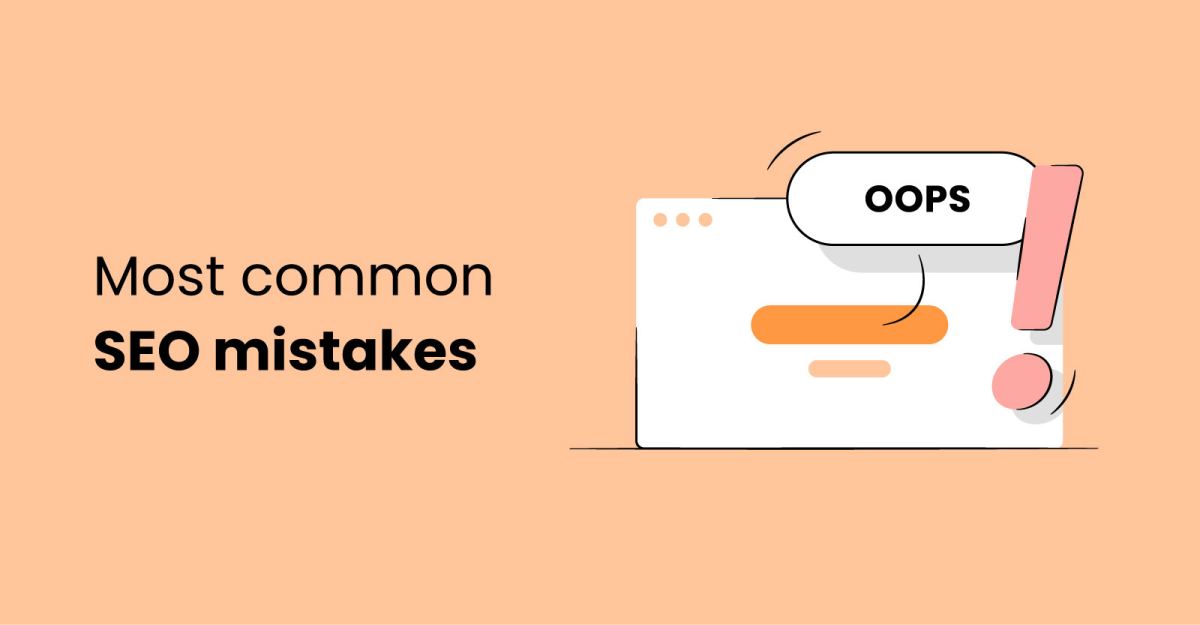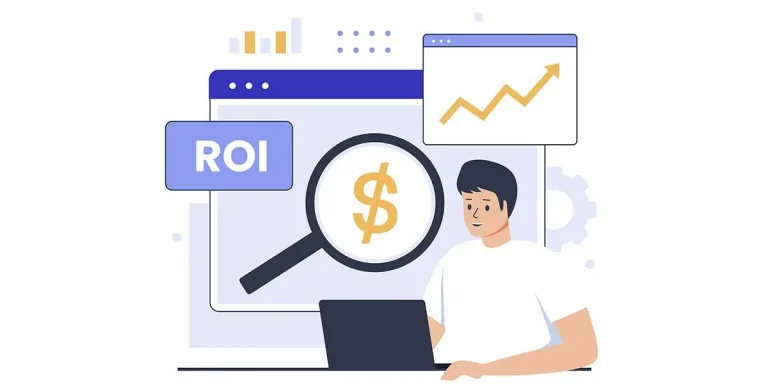Common Local SEO Mistakes and How to Fix Them
Australia: a land of diverse landscapes, unique wildlife, and… local SEO blunders? That’s right. As the digital landscape continues to evolve Down Under, many businesses are diving headfirst into the world of local SEO. But, just like a kangaroo caught in headlights, some are making leaps in the wrong direction. Let’s embark on a journey to uncover the most common local SEO mistakes made by businesses in the land of Oz.
Are you looking for experts in local seo services? Go local first are here to help.
Understanding the Basics of Local SEO
What is Local SEO?
Local SEO, or Local Search Engine Optimization, isn’t just your everyday, run-of-the-mill SEO with an Aussie accent. It’s a specialized strategy designed to make your business visible in local search results. Think of it as the digital equivalent of a big, neon sign outside a brick-and-mortar store, beckoning locals to come on in. When someone in Sydney searches for “best flat white coffee near me,” local SEO ensures that your charming café in Surry Hills pops up in their search results, rather than a café in Melbourne or, heaven forbid, New Zealand.
But why does this matter? Because, mate, local searches have intent. When someone searches locally, they’re often ready to take action, whether that’s making a purchase, booking a service, or visiting a store. And with the rise of “near me” searches, especially on mobile devices, local SEO is no longer just a good-to-have; it’s a must-have.
Why is Local SEO Crucial for Australian Businesses?
Australia is vast. From the bustling streets of Sydney to the serene beaches of Perth, consumers are turning to their devices to find local businesses that can meet their needs. In fact, according to Google’s Consumer Insights, over 80% of Australians turn to search engines to find local information. That’s a lot of potential customers you could be missing out on if you’re not optimized for local search.
Moreover, the digital landscape in Australia is competitive. With businesses vying for the top spot in local search results, those who don’t prioritize local SEO risk getting lost in the vast digital outback. And trust us, that’s a place you don’t want to be.
But here’s the snag: while many businesses recognize the importance of local SEO, they often stumble and make a few classic blunders. Before we dive into those pitfalls, it’s essential to grasp the basics of local SEO. After all, you wouldn’t play a game of cricket without knowing the rules, right?
Top Mistakes Businesses Make with Local SEO
Neglecting Google My Business (GMB) Listings
Ah, Google My Business, the unsung hero of local SEO. Imagine you’ve got this fantastic tool at your disposal, kind of like a Swiss Army knife for local businesses, and you’re using it as a mere paperweight. Tragic, isn’t it? Yet, many businesses in Australia are doing just that by neglecting their GMB listings.
Your GMB profile is like your business’s digital storefront. It’s the first thing potential customers see when they search for your business or services you offer locally. But here’s where many businesses drop the ball: they either don’t claim their listings or leave them incomplete. According to a study by BrightLocal, a staggering number of businesses don’t make full use of their GMB listings, missing out on potential visibility and customer engagement.
And it’s not just about claiming your listing. Regular updates, posting fresh photos, and responding to reviews (yes, even the not-so-glowing ones) can make a world of difference in how your business is perceived online.
Ignoring Local Citations and Inconsistent NAP (Name, Address, Phone Number)
Remember the days when businesses would list themselves in the Yellow Pages and hope for the best? Well, the digital age has its version, known as local citations. These are online mentions of your business, which can appear on directories, apps, or even other websites. But here’s the twist: consistency is key.
Imagine calling your mate Dave, but instead of reaching Dave, you get Darren because you had the wrong number. Frustrating, right? That’s how customers feel when they find inconsistent information about your business online. An inconsistent NAP can not only confuse potential customers but also search engines, leading to a drop in your local search rankings. As highlighted by Moz, consistent NAP information is a critical factor in local search performance.
Not Gathering or Responding to Online Reviews
Australians love to have their say, whether it’s about the latest footy match or their experience with a local business. Online reviews are the digital word-of-mouth, and they pack a punch. But some businesses, in a move that’s as baffling as putting pineapple on a meat pie, ignore them.
Reviews, both good and bad, offer invaluable insights into customer experiences. They also influence potential customers’ decisions. A survey by Podium found that over 90% of consumers consider online reviews before making a purchase decision. By not gathering or responding to these reviews, businesses miss out on a golden opportunity to build trust and engage with their audience.
Overlooking Local Content Creation
Content is king, but local content? That’s the emperor. Yet, many businesses are so focused on broader topics that they overlook the goldmine that is local content. By not having location-specific content, such as local events, community involvement, or even local news, businesses miss out on resonating with their immediate audience.
Local content not only helps in establishing a business as an authority in its area but also signals to search engines that the business is relevant to local searches. As Search Engine Journal points out, a robust local content strategy can significantly boost local search visibility.
Failing to Optimize for Mobile Searches
Australia, with its sun, surf, and sand, is a mobile nation. People are constantly on the move, and they rely on their mobile devices to find local businesses. If your website looks like a jumbled mess on mobile or takes ages to load, you’re in for a rude shock.
Mobile optimization isn’t just a fancy buzzword; it’s a necessity. With Google’s mobile-first indexing, if your site isn’t mobile-friendly, it’s like trying to win a race with a flat tyre. Not going to happen. Google’s own research indicates that as page load time goes from one second to ten seconds, the probability of a mobile site visitor bouncing increases by 123%. Yikes!

Tips to Avoid These Common Local SEO Mistakes
Regularly Update and Optimize GMB Listings
First things first, let’s tackle that Google My Business conundrum. Think of your GMB listing as a garden. You wouldn’t plant some lovely roses and then forget about them, would you? They need regular care and attention. Similarly, your GMB listing needs periodic updates to flourish.
- Claim Your Territory: If you haven’t claimed your GMB listing yet, now’s the time. It’s your digital real estate, and you wouldn’t want squatters, would you?
- Photos, Photos, Photos: A picture speaks a thousand words. Regularly update your GMB with fresh photos of your products, services, team, and premises. Show the world (or at least your local community) what you’re all about.
- Engage with Reviews: As we mentioned earlier, reviews are gold. Respond to them, cherish the good ones, and address the not-so-great ones with grace and professionalism. It shows you care.
Ensure NAP Consistency Across All Platforms
The digital world is vast, and your business’s footprint is likely spread across various directories and platforms. Here’s a tip straight from the local SEO kangaroo’s pouch: keep your NAP (Name, Address, Phone Number) consistent.
- Audit Your Online Presence: Use tools like Moz Local or BrightLocal to check for inconsistencies in your business listings.
- Standardize Your Format: Decide on a standard format for your business name, address, and phone number. Stick to it like glue, whether it’s on your website, social media, or local directories.
Actively Seek and Engage with Customer Reviews
You’ve got a voice, and so do your customers. Encourage them to use it. Reviews can be a treasure trove of feedback and a powerful tool for building trust.
- Ask and You Shall Receive: Don’t be shy. Encourage satisfied customers to leave positive reviews. A simple request can go a long way.
- Address the Elephants in the Room: Got a negative review? Address it head-on. Apologize if necessary, offer solutions, and show that you’re committed to improving. It’s all about turning lemons into lemonade (or in our case, turning Vegemite into a delicious toast spread).
Create Authentic Local Content
Local content isn’t just about slapping the name of your city in a blog post. It’s about creating genuine, relevant content that resonates with your local audience.
- Highlight Local Events: Sponsor a local event? Participate in a community fair? Write about it. Share photos, experiences, and insights.
- Share Local News: If something significant happens in your community that’s relevant to your business, weigh in. Offer your perspective and show that you’re in tune with local happenings.
Prioritize Mobile Optimization
Mobile optimization is no longer optional; it’s mandatory. With more Aussies searching on the go, your website needs to be ready to greet them, no matter the device.
- Test Your Site: Use tools like Google’s Mobile-Friendly Test to see how your site stacks up.
- Consider Speed: Slow and steady might win the race in some fairy tales, but in the digital world, speed is king. Optimize images, leverage browser caching, and consider using a Content Delivery Network (CDN) to boost your site’s speed.
For more information about marketing check out the governments marketing page.
FAQs on Local SEO Mistakes
Q: How often should I update my Google My Business listing?
A: Great question! Your Google My Business listing isn’t a “set it and forget it” deal. It’s recommended to check in at least once a month. Regularly add new photos, update business hours if they change, and respond to reviews. If there are significant changes, like a move to a new location or a change in services, update immediately. Remember, an active GMB listing is a happy GMB listing!
Q: Are online reviews really that important for local SEO?
A: Absolutely! Think of online reviews as the modern word-of-mouth. According to BrightLocal’s survey, a whopping 87% of consumers read online reviews for local businesses. Reviews not only influence consumer decisions but also play a role in search engine rankings. So, yes, they’re as important as a good flat white on a Monday morning.
Q: What tools can help me ensure NAP consistency?
A: There are several tools out there that can help you keep your NAP (Name, Address, Phone Number) consistent across the digital landscape. Some popular ones include Moz Local, BrightLocal, and Yext. These tools can scan various directories and platforms to ensure your business information is consistent and accurate.
Q: How can I make my website more mobile-friendly?
A: Making your website mobile-friendly is crucial in today’s mobile-first world. Here are some steps to consider:
- Responsive Design: Ensure your website design adjusts and looks good on all devices, be it desktop, tablet, or mobile.
- Optimize Images: Large images can slow down your site on mobile. Use tools like Compressor.io to reduce image sizes without compromising quality.
- Avoid Flash: Many mobile devices don’t support Flash. Stick to modern technologies like HTML5 for animations.
- Test Regularly: Use Google’s Mobile-Friendly Test to ensure your site offers a smooth mobile experience.
Q: How do local citations help in local SEO?
A: Local citations, or mentions of your business online, play a pivotal role in local SEO. They help in:
- Building Credibility: Consistent citations signal to search engines that your business is legitimate.
- Improving Visibility: Being listed in reputable directories can increase your business’s online visibility.
- Boosting Local Rankings: Citations from high-quality sources can positively impact your local search rankings.
Remember, it’s not just about quantity but also the quality and consistency of these citations.







